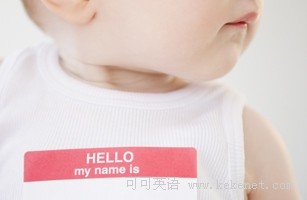
What's in a name? Letters that offer clues to one's future decisions. Previous studies have suggested that a person's monogram may influence his life choices - where he works, whom he marries or where he lives - because of "implicit egotism". For instance, a person named Fred might be attracted to the notion of living in Fresno, working for Forever 21 or driving a Ford.
名字里有什么?名字能預示一個人在未來做什么決定。此前種種研究表明,一個人的姓名可影響他生命中的重大決策——在哪里工作、和誰結(jié)婚或者住在哪里,而這種影響源于“內(nèi)隱自大”。舉個例子,一個名為“弗雷德”的人有可能傾向于居住在“弗雷斯諾”,到Forever 21公司工作,或者開一輛福特轎車。
Now a new study by professor Uri Simonsohn takes another look at the so-called name-letter effect and offers other explanations for the phenomenon. Uri found that the name of a person's workplace more closely correlated with the first three letters of a person's name. But Uri suggests that the reason for the association isn't implicit egotism.
而如今烏里教授的一項新研究為這種“姓名字母效應”提供了新視角,并為該現(xiàn)象提供了多種解釋。烏里發(fā)現(xiàn),一個人工作單位的名字和此人姓名的前三個字母關系最為密切。但烏里指出,這種聯(lián)系并非源于“內(nèi)隱自大”。
One alternative explanation to implicit egotism for these findings is reverse causality: Rather than employees seeking out companies with similar names, people starting new companies may name them after themselves.
他表示,有一種解釋可以替代“內(nèi)隱自大”理論,即“反向因果關系”:即并非人們愿意到有與自己姓名相似名稱的公司工作,事實上是,創(chuàng)業(yè)者更愿意用自己的姓名來命名公司。











